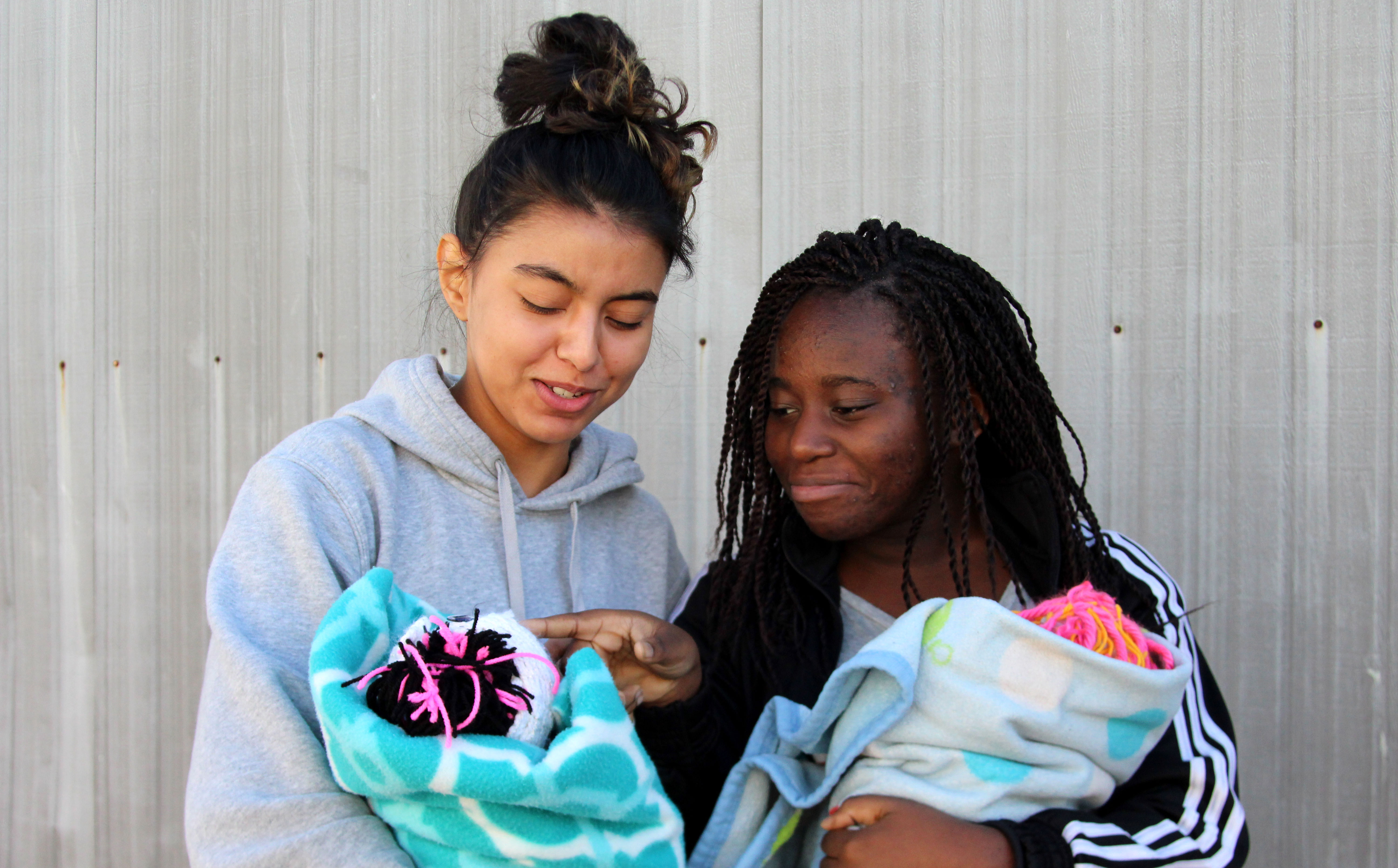

For one school week, the halls and classrooms of campus fill with students carrying babies. AP Psychology students participate in an annual project in which they parent flour babies as part of their child development unit.
“My baby, James Henry, is a total of 5 pounds and 3 ounces. He has wide eyes and chubby legs and I love him to bits. He’s honestly super cuddly,” senior Sarah Dewitz, single flour-parent said.
Students may choose between single-parenting or co-parenting their flour baby. They randomly draw their baby assignment. Babies are of either gender, and some students may draw twins or disabled children. Once assigned babies, parents must purchase a 5-pound bag of flour and decorate it with baby clothes and accessories.
Starting on Tuesday, students must supportively carry the baby with them at all times. If the student cannot care for the baby, they are responsible for finding a babysitter. Babysitters may only watch the baby for two hours a day. The project focuses on a child’s social, emotional, cognitive and physical development. It forces students to take on the responsibility of constantly caring for someone else.
“It’s about putting the baby before yourself,” sophomore Nalivette Caravalla said.
The flour baby project presents more challenges as the week goes on. Initially, students feel excitement for finding their baby’s gender, making and naming it. However, some student-parents face hostility from people attempting to harm their baby. They must overcome bullying and keeping track of their child through day-to-day activities.
“You have to remember the baby exists a lot, and make sure you don’t forget it,” Caravalla’s co-parent, sophomore Dena Cher-Fils, said.
Cher-Fils and Caravalla bonded over parenting their babies. The partners were assigned twins, an autistic boy and a girl. As co-parents, the girls managed trading babies over different class schedules and protecting it from aggressive peers trying to “sabotage” their baby.
Not all co-parents shared their baby so smoothly, though. Some co-parents struggle to share their babies fairly.
“Right now we have two co-parents fighting over the baby. That becomes a challenge, when there are custody issues over the baby,” AP Psychology teacher, Kelly Mahler, said.
Single-parenting presents challenges, as well. Without a partner to assist them in watching their child, single parents must dedicate more time with the child and find trustworthy babysitters. Minor tasks become burdens when the student raises a child alone.
“It has been highly impactful to my every day routine. I’ve said to multiple teachers that I don’t know how single parents can use the restroom with their baby. Some have said strollers always help, but if that’s not an option, some parents just hold it,” Dewitz said.
On the last day of the project, students complete reflection questions about their week as a parent. They also create a presentation about childhood development. Students may opt out of the flour baby project and instead research their own childhood, creating a scrapbook about their own developmental milestones.
Mahler hopes students learn more than the human developmental stages through this weeklong assignment.
“You have to think about someone else all day long, and they begin to take on that role of a parent and learn empathy, which I think is something really special and a side lesson,” Mahler said.
Howdy, I’m Chasity, reference editor. In addition to journalistic writing, I love music, running, dancing, and poetry. I am the lead trumpet player in my ensemble and a lifeguard, as well. I juggle my busy schedule with a mild chocolate addiction and an awful habit of spewing bad puns. I live by this quote: “Shoot for the moon. If you miss, you’ll land among the stars.”